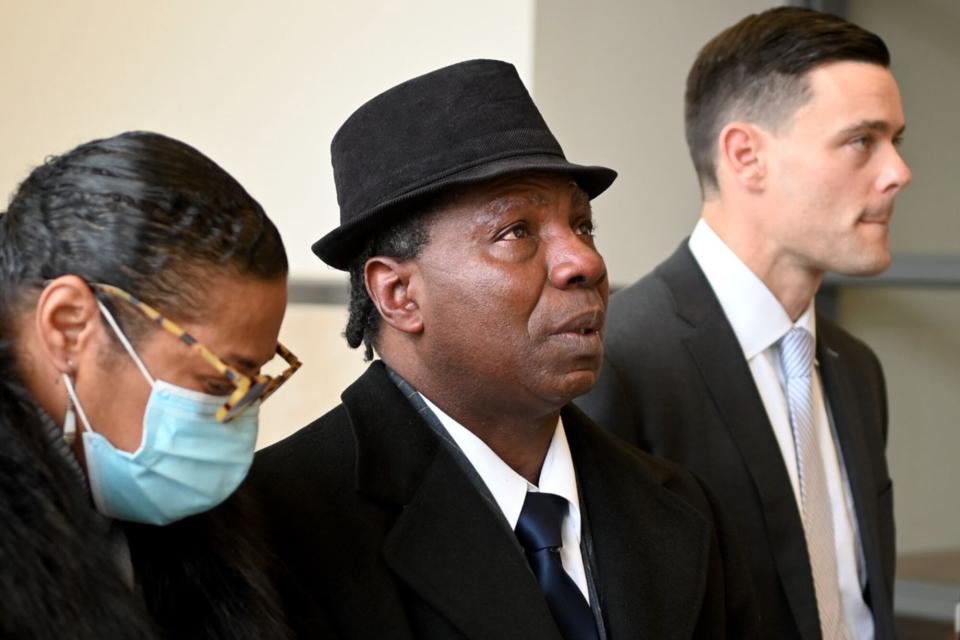Lucky producer who helped exonerate man in Alice Sebold rape conviction working on doc about the case
- Oops!Something went wrong.Please try again later.
New light will continue to be shed on the wrongful conviction in author Alice Sebold's rape case. Now that Anthony Broadwater has had his conviction as the rapist at the center of Sebold's memoir Lucky overturned after serving 16 years in prison from 1983-1999, a new documentary is in development about the case.
The new film will be titled Unlucky, and is being produced by Timothy Mucciante — who, during his previous tenure as an executive producer on a film adaptation of Lucky, found inconsistencies in Sebold's account that eventually led to Broadwater's exoneration.
"When I first read Lucky, I was deeply distressed by the horrific attack Sebold endured as a freshman in college. She deserves all of our empathy and sympathy," Mucciante wrote in a new op-ed in the Los Angeles Times. "But after I became involved in the production of the film based on Lucky, I reread the book with a more critical eye. I began to sense that the portions of the book that dealt with the arrest and subsequent trial of her attacker were not credible."
In the op-ed, Mucciante detailed that one of the things that made him start to question the case was Sebold's own account of comments made to her by an assistant district attorney after she initially identified a man other than Broadwater in the police lineup (later, in the trial, she did identify Broadwater as her rapist, which together with a now-discredited junk science known as "microscopic hair analysis" secured his conviction). He said that a script rewrite that changed the race of Sebold's assailant in the film to a white man (Broadwater is Black) also led to keeping his "unease with aspects of the book fresh in mind."

Katrina Tulloch/The Post-Standard via AP Anthony Broadwater reacts to his conviction being overturned after serving 16 years in prison for the rape of author Alice Sebold.
Increasingly uneasy with these inconsistencies, Mucciante hired a Syracuse-based private investigator named Dan Myers to look into the case. It was through Myers that Mucciante first met Broadwater, who is referred to pseudonymously as "Gregory Madison" in Sebold's book.
"Broadwater's unfair conviction is yet another example of the racism our justice system perpetuates on people of color, especially Black people," Mucciante writes. "The Lucky production, now canceled, was another way this kind of racism is monetized."
After Broadwater's conviction was overturned — a conviction that, in addition to forcing him to spend more than a decade in jail, placed him on New York's sex offender registry and tainted his relationships with friends and family — Sebold issued a public apology for her role in ruining his life. In a statement, Broadwater said he was "relieved that she has apologized. It must have taken a lot of courage for her to do that."
"Broadwater is a man who served his country as a Marine, a man who was forced to support himself and his family by doing odd jobs after his release from prison," Mucciante writes. "But despite everything he has endured, he is a man who has accepted Sebold's apology, and one who refused to give up hope on his decades-long fight to prove his innocence. I am humbled to now call him my friend."
If you or someone you know has been sexually assaulted, please contact the National Sexual Assault Hotline at 1-800-656-HOPE (4673) or go to rainn.org.
Related content:

